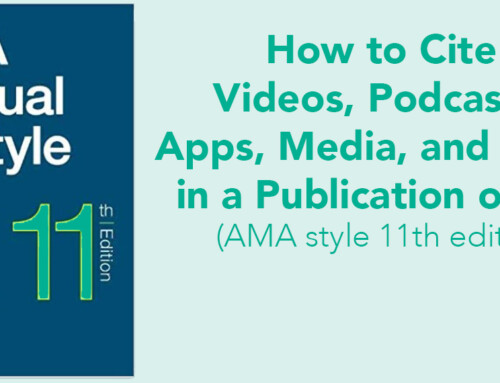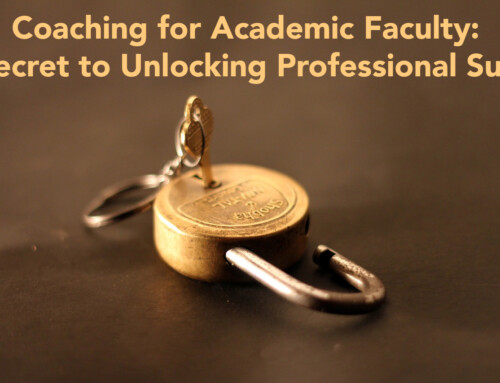Programs across the country are in the midst of the residency selection process. Fourth years have submitted personal statements, CVs, and letters of reference and are starting on the interview circuit. Obtaining letters is a hot topic for students but it is also important topic for preceptors and educators to consider their role in this process too! This month’s ALiEM MEdIC series case hopes to elicit our community’s considerations about the best and worst practices for requesting and responding to reference letter requests. Join us for this discussion!
P.S. Eve Purdy, Brent Thoma, Sarah Luckett-Gatopoulos and I would also like to invite you all to register for the ALiEM MEdIC pre-conference workshop at SMACC. Come out and be part of a LIVE version of the ALiEM MEdIC case development and release for a special SMACC version of the case series!
MEdIC Series: The Concept
Inspired by the Harvard Business Review Cases and initially led by Dr. Teresa Chan (@TChanMD) and Dr. Brent Thoma (@Brent_Thoma), the Medical Education In Cases (MEdIC) series puts difficult medical education cases under a microscope. On the fourth Friday of the month, we pose a challenging hypothetical dilemma, moderate a discussion on potential approaches, and recruit medical education experts to provide “Gold Standard” responses. Cases and responses are be made available for download in PDF format – feel free to use them! If you’re a medical educator with a pedagogical problem, we want to get you a MEdIC. Send us your most difficult dilemmas (guidelines) and help the rest of us bring our teaching to the next level.
The Case of The Late Letter
by Eve Purdy (@purdy_eve)
Polly’s fourth year had thus far been quite eventful and full of adventure. As a senior medical student on an elective EM rotation, she had been touring schools across the country, with the hope of garnering support for her upcoming residency applications. The residency application deadline was now a mere 10 days away… and now as she walked home from her latest evening shift, she considered asking her attending for a letter of reference. This would be her last required letter. She picked up the phone, dialing up her best friend Mike for some advice. After a quick catch up the conversation, they eventually get to the topic of the letter.
“I know it’s only my third day at this school but I really like it,” Polly started. “The shift with Dr. Marshall today was awesome! I wish I didn’t book this elective so late in the cycle? It’s only ten days until our residency applications are due.”
“Yeah kind of a tough situation but I think it’ll still be okay,” Mike offered. “I wonder if a letter from an attending there would improve the chances of your application to the program?”
“I was thinking the same thing!!!” Polly exclaims. “I need to do all that I can to boost my chances. Maybe I should ask Dr. Marshall?” She hangs up the phone and starts thinking more about that option.
She considered why it could be a good idea: “Things did go well today. I totally nailed the chest pain diagnosis and he saw me suture that laceration flawlessly. I know he golfs and I worked in a joke about my game last weekend. And he laughed! That seems like a good sign, right? It was also a really busy shift but he still dedicated time to teach me. I think he seems to like me, and I know I’ve expressed my interest in the program here!”
“It certainly sounds like you have a rapport,” agreed Mike.
“…Or maybe things didn’t go as well as I think they did?” she worries. “He did interrupt my case presentations a couple of times. I also had to ask a lot of silly questions because I don’t know my way around the department. I couldn’t find the casting cart… then when I did the materials were different then the ones I am used to working with. I got plaster everywhere. But… everyone makes those mistakes though, right?”
“Totally,” affirmed Mike once again. “Listen, it’s not easy trying to score that last letter of rec, you know? I mean, I was super lucky because I had done some early electives last year and then my summer research supervisor is also a plastic surgeon, but that’s neither here nor there. You gotta do what you gotta do. Especially, like you said, all the programs ask for at least 3 letters from emergency medicine people right?”
“Okay, you know what… I am just going to do it. It went well, and it might not go any better with the doctors I work with next and I probably can’t ask someone much later. But I don’t really know how to get in touch with him? I don’t have a phone number and I might not run into him again? I guess I will just email.”
Two hours later Polly sends this message:
Dear Dr. Marshall, Thanks for working with me the other day. I had a great shift with you. I am wondering if you could write me a letter of reference for my residency application to Emergency Medicine? Regards, Polly Rooney
Key Questions
- Polly is in a tough situation and she instinctively turns to her friend Mike. Is this appropriate? Where should medical students turn for advice about residency applications?
- Dr. Marshall is now also in a difficult position. How should he respond to Polly’s request?
- What are some key dos and don’ts when seeking letters of recommendation and agreeing to write them?
Weekly Wrap Up
As always, we posted the expert responses and a curated commentary derived from the community responses one week after the case was published. This time the two experts are:
- Dr. Alim Pardhan is the program director of the McMaster University’s Royal College training program in emergency medicine and the physician site lead for the Hamilton General Hospital Emergency Department. His interests include, medical education, physician leadership, and hospital administration.
- Dr. Rob Rogers is an emergency physician, Course Director for The Teaching Course, and co-founder of The Teaching Institute.
On January 3, 2015 we posted the Expert Responses and Curated Community Commentary for the Case of the Late Letter. After that date, you may continue to comment below, but your commentary will no longer be integrated into the curated commentary which was released on January 3, 2015. That said, we’d love to hear from you, so please comment below!
All characters in this case are fictitious. Any resemblance to real persons, living or dead, is purely coincidental. Also, as always, we will generate a curated community commentary based on your participation below and on Twitter. We will try to attribute names, but if you choose to comment anonymously, you will be referred to as your pseudonym in our writing.





